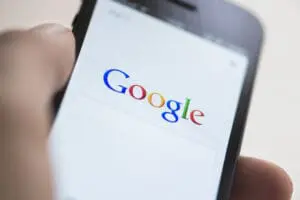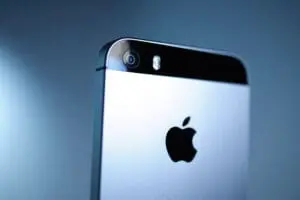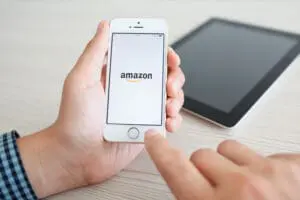Google on trial: the biggest challenge to tech power in decades comes to a close
Stateside court case sees world’s best-known search engine put on trial for stifling competition
‘Don’t be evil’ – this was Google’s motto until it was quietly removed from its code of conduct in 2015 after the company was taken over by Alphabet, the multinational technology conglomerate. Until then, it had been Google’s mantra for doing good for the world.
This is significant because it marked the move for Google from a cuddly start-up to an antitrust target. Regulatory authorities in the EU and the US have accused Google of anti-competitive conduct in search, and the UK competition watchdog has raised similar concerns about search advertising.
The tech giant – which earned $283 billion (£228 billion) in revenue last year – has for the last 10 weeks been on trial in the US. The US Department of Justice (along with 38 other states) spent three years over two presidential administrations building the case that Google illegally abused its power in online search to throttle competition.
This has been billed as the biggest challenge to tech power in decades. The US government has claimed that Google has unfairly maintained a search engine and search advertising monopoly by paying billions of dollars to device makers and internet browsers to be the default search engine.
Google’s final witness this week let slip that it pays Apple 36% of its ad revenue as a result of its agreement to secure its default status across all Apple devices. Despite this, Google has maintained that its default agreements are not anti-competitive. Google concedes that ‘default settings matter’, hence why they bid for them, but contends they’re easy for people to change should they want to.
The outcome of the trial against Google in the US is not expected until early next year.

Record €4 billion fine for Google
In 2018 Google received a record 4.3 billion euros (£3.75 billion) fine from the European Commission for its illegal restrictions on Android devices that strengthened Google’s dominant position in search. Google lost its appeal against the fine last year but the European Court of Justice reduced the bill to 4.1 billion euros (£3.6 billion).
In the UK, the Competition and Markets Authority has also raised concerns about the impact Google’s dominance has had on the prices paid by advertisers. In 2022, Google earned 57% of its total annual revenue from search advertising.
Is big tech dominance a growing problem?
Google pays billions every year to ensure its search engine is the default on smartphones and internet browsers – this was as much as $26.3 billion in 2021, according to evidence revealed in the US v Google trial. Yet, Google still maintains that ‘people don’t use Google because they have to – they use it because they want to.’ And that its distribution of Google Search ‘hasn’t harmed competition or reduced consumer choice.’
Google is the default search engine for more than 90% of the mobile device market. So you could argue it’s this that has helped make it the most popular search engine in the UK – 94% of searches in 2023 were made using Google, compared with its next biggest rival, Microsoft’s Bing, that comes a nowhere-near-close-second with 4% of the market.
The new Digital Markets and Competition Bill that’s currently working its way through UK parliament, and was in the King’s Speech last week, recognises that there are problems with market dominance of big tech. Amongst other powers, the bill would give the UK competition watchdog more power to hand down hefty fines to global companies like Google, Apple and Amazon of up to 10% of their global turnover.
But regulators can’t directly award compensation to consumers who have been left out of pocket because of anti-competitive practices.
Compensation for UK consumers left out of pocket by big tech companies
This is where the collective action regime – which came into force under the Consumer Rights Act 2015 – plays an important role in consumer protection. It enables consumers to hold big companies accountable for abusing their dominant position in the market without consumers having to foot the bill for legal action.
Big tech brands Amazon, Apple, Google and Meta have all had cases filed on behalf of UK consumers accusing them of breaching competition law and using a range of illegal practices which have meant higher costs for consumers.
Low awareness of group claims as a route to compensation
For consumers, there’s a bigger reason for paying attention to claims like these. Our June analysis of 12 consumer claims filed with the specialist competition court highlighted that UK consumers could be owed a total of £36 billion. If successful, every adult in the UK could, on average, be eligible for compensation from 5 of the 12 consumer claims we looked at.
But our research has shown that half of the population has low or no awareness of class actions. Many people perceive making claims for compensation to be time-consuming and complicated.
This low awareness and perceived barriers to claiming compensation is why we launched Consumer Voice – the first website and consumer community in the UK that is dedicated to promoting all group legal claims.
Join our community for free
We want to help as many people as possible in the UK get back what they’re owed from rule-breaking companies. Sign up to our newsletter if you want to stay informed about these claims, and others in the future.
Our community is free to join and we will tell people about the cases they could be eligible to be part of and help them track the progress of these often lengthy court cases.
Related claims

Google Search
Google is accused of anti-competitive behaviour by shutting out search engine competition in £7 billion lawsuit affecting 65 million UK consumers.

Amazon
Do you shop using Amazon’s marketplace at amazon.co.uk? You could be eligible for compensation. Sign up to stay updated.

Google Play Store
Google faces a £920m consumer claim for excessive Play Store charges. Sign up for updates if you bought apps on your android since 1 October 2015.

Apple App Store
Apple faces allegations of excessive App Store charges of £1.5bn. Sign up to stay updated if you bought apps on your iPhone or iPad since 1 October 2015.

Apple iPhone
Apple accused of selling iPhones with defective batteries that caused performance problems in £853m legal claim. Sign up for updates.

Amazon & Apple
Amazon and Apple accused of striking secret deal to increase the cost of Apple products costing UK consumers £500 million. Sign up for updates.


